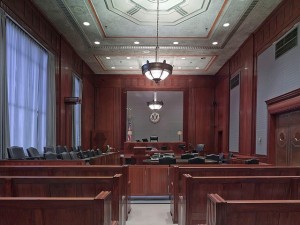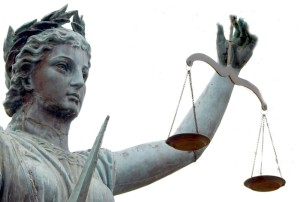
By Marisa Mariencheck
On November 29, 2018, the Department of Education (“DOE”) published a notice of proposed rulemaking in the Federal Register (the “Proposed Regulations”).[1] If promulgated, the Proposed Regulations would be the first “Title IX regulations . . . to address sexual harassment as a form of sex discrimination” promulgated since Title IX’s implementing regulations were promulgated in 1975.[2] The DOE asserts that the Proposed Regulations will help ensure recipients understand their legal obligations, including what conduct is actionable as sexual harassment under Title IX, what conditions trigger a mandatory response by the recipient, and the specific requirements such a response must meet so that “recipients protect the rights of their students to access education free from sex discrimination.”[3] More specifically, the DOE proposes adding § 106.45(b)(3) which states that “the recipient must conduct an investigation of the allegations in a formal complaint,” and provides specific requirements and procedures applicable when investigating a formal complaint.[4] Under § 106.45(b)(3)(vii), institutions of higher education must provide a live hearing and “permit each party to ask the other party and any witnesses all relevant questions and follow-up questions, including those challenging credibility.”[5]
To support the requirement of cross-examination for due process procedures in the Title IX context, the DOE relies entirely on Doe v. Baum, a 2018 Sixth Circuit decision concluding that due process requires cross-examination if credibility is in dispute and material to the outcome of a university student disciplinary proceeding.[6] The Sixth Circuit emphasized the importance of cross-examination in not only allowing “the accused to identify inconsistencies in the other side’s story,” but also in giving “the fact-finder an opportunity to assess a witness’s demeanor and determine who can be trusted.”[7] Thus, where public universities must choose between competing narratives to resolve a case, the Sixth Circuit requires universities to “give the accused … or his agent an opportunity to cross-examine the accuser and adverse witnesses in the presence of a neutral fact-finder.”[8] Despite the DOE’s reliance on Doe v. Baum, several cases following that decision indicate that courts do not unequivocally follow Doe v. Baum’s holding, and generally limit its application to circumstances where the resolution of a material dispute turns on witness credibility.
However, courts have not consistently used Doe v. Baum to require universities to include cross-examination in Title IX proceedings. Courts citing Doe v. Baum unanimously refuse to “read Baum more broadly” than the Sixth Circuit wrote it and apply its holding to require private universities to allow for cross-examination in Title IX proceedings.[9] For example, in Doe v. Belmont Univ., the Middle District of Tennessee held that a private university did not breach its contract with a student where it failed to provide cross-examination.[10] Similarly, that court noted in a different case that neither a sexual misconduct policy nor implied contractual relationship between an accused student and a private school provides for the right to cross-examination in the Title IX setting.[11] In fact, the District of New Jersey directly rejected a student’s argument referencing Doe v. Baum and asserting that the Proposed Regulations, in their current form, would be promulgated as final regulations.[12]
When considering Doe v. Baum, courts generally note that cross-examination must only occur if a material dispute turns on credibility. In Doe v. Princeton, the court concluded that cross-examination was not required because even if Doe v. Baum bound the Third Circuit, the student failed to establish that the ultimate determination of the issue turned on someone’s credibility.[13] Where the issue concerns the credibility of parties in the investigation, a “lack of meaningful cross examination may contribute” to a violation of an accused student’s due process rights in the Title IX setting.[14] For this reason, the District of Colorado recently determined that the lack of a full hearing with cross-examination provided evidence supporting an accused student’s claim of due process violation by a public university.[15] Similarly, in Doe v. Northern Michigan University, the court emphasized that need for cross-examination only arises where “the finder of fact must choose between believing an accuser and an accused.”[16] There, the court denied a public university’s motion to dismiss a student’s due process claim where material facts turned on witness credibility and the student was not able to testify directly to the body ultimately responsible for his discharge.[17]
In determining whether Title IX due process requires cross-examination, courts examine the specific factual context of the individual case rather than enforce a constant cross-examination requirement.[18] In Doe v. University of Mississippi, the court explained thatto assess the possible impact of cross-examination, it is imperative to understand the factual context.[19] Faced with a student accused of sexual assault’s claim of due process violation, the court noted that Title IX due process only requires cross-examination where governmental action seriously injures an individual and the reasonableness of the action depends on fact-finding.[20] Accordingly, the court determined that the student’s due process rights were violated where the university deprived him of an opportunity to cross-examine, either directly or through written questions submitted to the hearing panel, witnesses whose accounts of the disputed events was the sole evidence used by the fact-finders.[21] Thus, courts consistently limit cross-examination requirements to situations where assessments of witness credibility directly determine the outcome of the case.
Two California appellate court decisions use Doe v. Baum to explicitly require cross-examination in public university Title IX proceedings; however, both of these decisions involved cases where the resolution of material disputes turned on witness credibility. The first case overturned a trial court’s finding that the University of Southern California (“USC”) satisfied due process in investigating a student for sexual assault.[22] The California Court of Appeals emphasized that an adjudicator’s assessment of credibility requires an accused student to have the opportunity indirectly to question the complainant.[23] Therefore, USC violated a student’s due process rights where the Title IX agent who served as both investigator and adjudicator failed to interview three central witnesses in a case where material disputes and conflicting testimony existed.[24] Next, in Doe v. Allee, the California Court of Appeals agreed with Doe v. Baum’sholding extending the right of cross-examination to the questioning of witnesses other than the complainant where their credibility is critical to the fact-finder’s decision.[25] The court explicitly concluded that in the Title IX setting, where a student faces severe disciplinary sanctions, and the credibility of witnesses (including the accusing student) is central to the allegation’s adjudication, universities must provide a cross-examination mechanism.[26] Despite the court’s determination that the case before it required cross-examination, the court emphasized that cross-examination need not always be used.[27] However, where credibility is central to a university’s determination, a student accused of sexual misconduct has a right to cross-examine his accuser, directly or indirectly, so the fact finder can assess the accuser’s credibility.[28]
Moreover, where courts do follow Doe v. Baum’s holding, they do not specifically require a direct, live cross-examination. In Doe v. Allee, the court explained that “mechanisms” can readily be fashioned to “provid[e] accused students with the opportunity to hear the evidence being presented against them without subjecting alleged victims to direct cross-examination by the accused.”[29] The court explained that to satisfy due process, the accused may cross-examine critical witnesses, directly or indirectly, at a hearing in which the witnesses appear in person or by other means (e.g., videoconference) before a neutral adjudicator with the power to find facts).[30] Similarly, Doe v. University of Southern California elucidated that a public university may submit questions for the adjudicator to ask the accuser and interview critical witnesses in person or by video.[31]
Other district courts also proffer indirect ways in which university proceedings can satisfy Title IX cross-examination requirements. For example, in Doe v. University of Mississippi, the court indicated that the use of written questions submitted to a third party satisfied the right to cross-examination,[32] and in Doe v. Northern Michigan University, the court concluded that “some form of witness questioning” must occur in front of the decision to allow it to “choose between competing narratives” in making its findings.[33] The Southern District of Ohio emphasized in June 2019 that “nothing in Baum” mandates that universities “employ specific written procedures” for witness cross-examination at disciplinary hearings.[34] It is “neither practical nor desirable” for a university to be a court of law.[35] Accordingly, courts do not construe Doe v. Baum’s holding as requiring live, trial-like cross-examination procedures.
In
conclusion, courts interpreting Doe v.
Baum generally conclude that the determination of the need for
cross-examination requires an analysis of the specific factual situation, and
courts impose a cross-examination requirement only in cases where the credibly
of the parties or critical witnesses is at issue, and where a material dispute
of the case turns on witness credibility. Importantly, courts do not
require a live, direct cross-examination of witnesses or the accuser, as required
in the DOE’s Proposed Regulation.
[1] See Title IX, 83 Fed. Reg. 61,462 (proposed Nov. 29, 2018) (to be codified at 34 C.F.R. pt. 106).
[2] Id. at 61,463.
[3] Id. at 61,462.
[4] Id. at 61,475.
[5] Id.
[6] Doe v. Baum, 903 F.3d 575, 584 (6th Cir. 2018) (determining in part that a male student stated a due process claim against a public university because the university failed to allow for cross-examination)
[7] Id. at 581
[8] Id. at 578.
[9] Doe v. Belmont Univ., 334 F. Supp. 3d 877, 894 (M.D. Tenn. 2018)
[10] 334 F. Supp. 3d 877, 894 (M.D. Tenn. 2018)
[11] Z.J. v. Vanderbilt Univ., 355 F. Supp. 3d 646 (M.D. Tenn. 2018)
[12] Doe v. Princeton Univ., Civil Action No. 18-16539 (MAS) (LHG), 2019 U.S. Dist. LEXIS 4449, *17 (D.N.J. Jan. 9, 2019).
[13] Id. at *20.
[14] Norris v. Univ. of Colo., 362 F. Supp. 3d 1001, 1020 (D. Colo. 2019)
[15] Id.
[16] 2:18-CV-196, 2019 WL 2269721, at *6 (W.D. Mich. May 28, 2019)
[17] Id.
[18] See Doe v. Univ. of Miss.,361 F. Supp. 3d 597, 611 (S.D. Miss. 2019)
[19] Id.
[20] Id. at 613.
[21] Id. at 611.
[22] Doe v. Univ. of S. Cal., 29 Cal. App. 5th 1212, 1235 (2018).
[23] Id. at 1237.
[24] Id.
[25] 30 Cal. App. 5th 1036, 1066 (2019).
[26] Id. at 1072.
[27] Id. at 1067.
[28] Id. at 1072.
[29] Id. at 1066
[30] Id.
[31] 29 Cal. App. 5th at 1237.
[32] 361 F. Supp. 3d at 611.
[33] No. 2:18-CV-196, 2019 U.S. Dist. LEXIS 88717 (W.D. Mich. May 28, 2019)
[34] Junhe Qiu v. Univ. of Cincinnati, 1:18-cv-634, 2019 WL 2396664, *10 (S.D. Ohio June 6, 2019)
[35] Doe v. Univ. of Miss., 361 F. Supp. 3d at 609








